D. Vernon / M. Batty (UK) (abstract)
advertisement
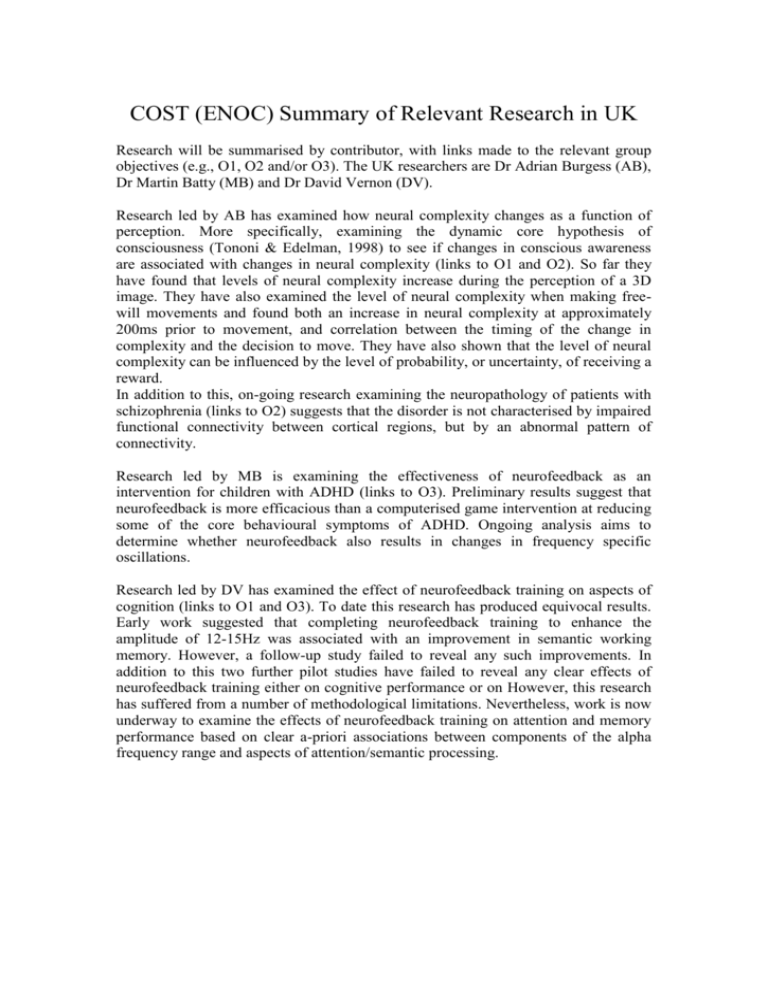
COST (ENOC) Summary of Relevant Research in UK Research will be summarised by contributor, with links made to the relevant group objectives (e.g., O1, O2 and/or O3). The UK researchers are Dr Adrian Burgess (AB), Dr Martin Batty (MB) and Dr David Vernon (DV). Research led by AB has examined how neural complexity changes as a function of perception. More specifically, examining the dynamic core hypothesis of consciousness (Tononi & Edelman, 1998) to see if changes in conscious awareness are associated with changes in neural complexity (links to O1 and O2). So far they have found that levels of neural complexity increase during the perception of a 3D image. They have also examined the level of neural complexity when making freewill movements and found both an increase in neural complexity at approximately 200ms prior to movement, and correlation between the timing of the change in complexity and the decision to move. They have also shown that the level of neural complexity can be influenced by the level of probability, or uncertainty, of receiving a reward. In addition to this, on-going research examining the neuropathology of patients with schizophrenia (links to O2) suggests that the disorder is not characterised by impaired functional connectivity between cortical regions, but by an abnormal pattern of connectivity. Research led by MB is examining the effectiveness of neurofeedback as an intervention for children with ADHD (links to O3). Preliminary results suggest that neurofeedback is more efficacious than a computerised game intervention at reducing some of the core behavioural symptoms of ADHD. Ongoing analysis aims to determine whether neurofeedback also results in changes in frequency specific oscillations. Research led by DV has examined the effect of neurofeedback training on aspects of cognition (links to O1 and O3). To date this research has produced equivocal results. Early work suggested that completing neurofeedback training to enhance the amplitude of 12-15Hz was associated with an improvement in semantic working memory. However, a follow-up study failed to reveal any such improvements. In addition to this two further pilot studies have failed to reveal any clear effects of neurofeedback training either on cognitive performance or on However, this research has suffered from a number of methodological limitations. Nevertheless, work is now underway to examine the effects of neurofeedback training on attention and memory performance based on clear a-priori associations between components of the alpha frequency range and aspects of attention/semantic processing.
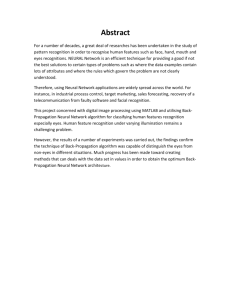
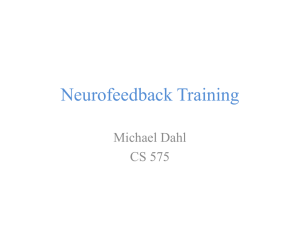
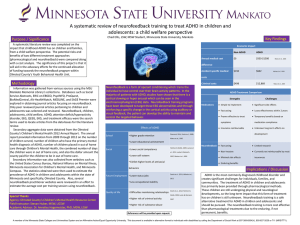
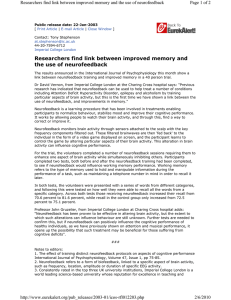
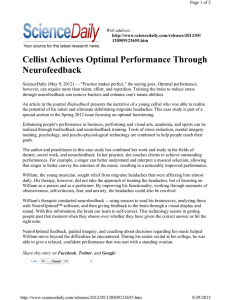
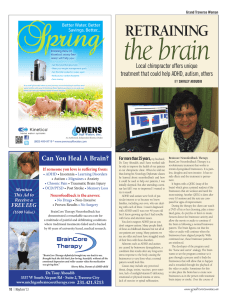
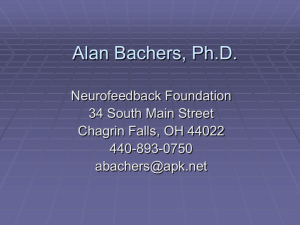
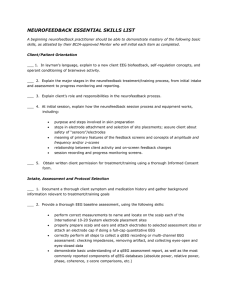
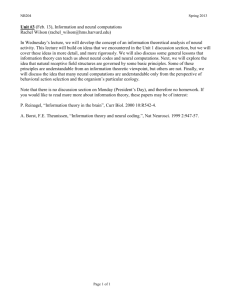
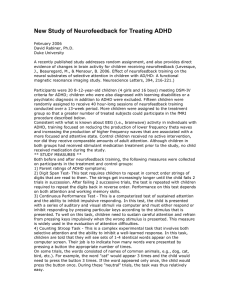
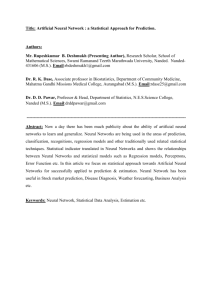
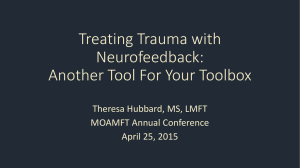
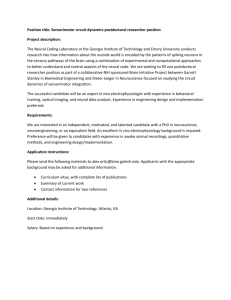
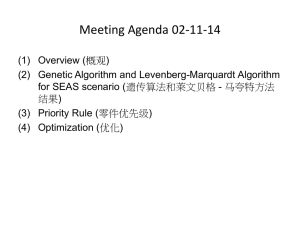
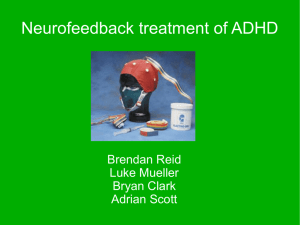
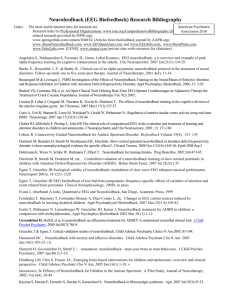
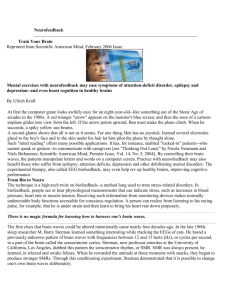

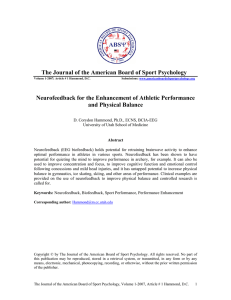
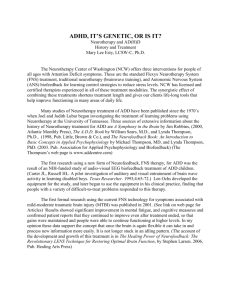
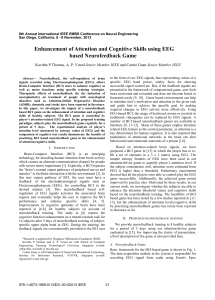
![P1: IKF Applied Psychophysiology and Biofeedback [apb] pp681-apbi-453896 January 10, 2003](http://s2.studylib.net/store/data/011620184_1-d076691c272ac695b0355691f506d7db-300x300.png)